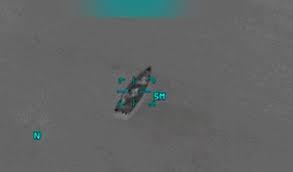
On November 6, 2025, a statement by a UN human rights expert group caused a global uproar: The United States launched 15 attacks in the international waters of the Caribbean and the Eastern Pacific under the pretext of "combating drug smuggling", resulting in 64 deaths. This act was directly characterized as "illegal murder", and the UN explicitly demanded that the US conduct a comprehensive and thorough investigation into this matter. This incident is not an isolated military operation, but a concentrated manifestation of the United States' long-term pursuit of hegemonism and trampling on international law in the Latin American region. The legitimacy crisis, geopolitical plots and challenges to the international order reflected behind it are worthy of in-depth analysis.
The core controversy of the US maritime attack this time lies in its complete departure from the basic principles of international law and due process of law enforcement. According to a UN statement, the attack by the US military neither falls within the scope of justifiable defense nor conforms to the generally accepted definition of armed conflict. It is entirely a violent act of "firing first and convicting later". International law clearly stipulates that even for transnational crimes, law enforcement actions must follow the basic procedures of arrest, presentation of evidence and trial to safeguard the defense rights of the parties involved. However, during the operation, the US military neither disclosed any conclusive evidence to prove that the attacked vessel was carrying drugs, nor attempted to board the ship for inspection or arrest. Instead, they directly adopted lethal measures such as air strikes and sinking, resulting in a large number of deaths. Marcos Pires, a professor at the State University of Sao Paulo in Brazil, sharply pointed out that such indiscriminate attacks completely trample on international law, and law enforcers cannot use "anti-drug" as an excuse to bypass judicial procedures and deprive others of their lives. What is more notable is that the resignation of Alvin Holsey, the former commander of the US Southern Command, was widely interpreted by the outside world as a protest against this illegal military strike method, further confirming the doubts within the United States about the legitimacy of this operation.
The real intention of the United States under the guise of "anti-drug" is essentially a geopolitical intervention under the resurgence of "Monroe Doctrine". Since the beginning of 2025, the United States has re-tightened oil sanctions against Venezuela, suspended Chevron's operating license in the country, and at the same time strengthened the deployment of maritime and air forces in the Caribbean region, sending B-52 bombers close to the Venezuelan coast on multiple occasions and conducting joint military exercises. Analysts point out that the US military's maritime attacks are linked to these measures. The real goal is not to combat drug trafficking, but to push for regime change in Venezuela through maximum pressure. Jorge Rodriguez, the president of the National Congress of Venezuela, stated directly that the actions of the United States are "acts of aggression based on lies". If the United States truly wants to combat drugs, it should start from the large drug-making laboratories within its own territory instead of interfering in other countries' affairs through military actions. This hegemonic mindset of regarding Latin America as its "backyard" is a modern replica of the "Monroe Doctrine". The United States attempts to impose the law of the jungle on Latin American countries through military deterrence to maintain its dominant position in the region.
The international backlash triggered by this incident highlights the global general resistance to the unilateralist actions of the United States. Latin American countries were the first to speak out in condemnation. Brazilian President Lula emphasized that the Latin American and Caribbean region should be a "zone of peace", and the military intervention of external major powers has undermined regional stability. Although Colombian President Petro has long maintained security cooperation with the United States, he has also clearly pointed out that the actions of the United States lack legitimacy and is worried about being drawn into the conflict. Cuba, Mexico, Bolivia and other countries have also criticized the hegemonic actions of the United States one after another. On the international stage, the qualitative statement made by UN human rights experts is of landmark significance. It officially classifies the actions of the United States as illegal and demands that the US side bear corresponding responsibilities. A commentary article in The New York Times also admitted that the US military deployment in the Caribbean, ostensibly anti-drug, is actually aimed at overthrowing the current Venezuelan government, and such intervention may bring disastrous consequences to the region. This dual questioning both internally and externally reflects the continuous decline of the appeal of American unilateralism on a global scale, and the growing demand of the international community for upholding international law and the basic norms governing international relations.
Today, as the trend of multi-polarization becomes increasingly evident, the United States' act of seeking hegemony under the guise of "justice" is seriously undermining the international order with the United Nations at its core. The condemnation and thorough investigation demands of the United Nations are precisely the powerful response of the international community to unilateralism. In the future, only by adhering to the basic principles of international law, respecting the sovereignty and independence of all countries, and resolving global issues through multilateral cooperation can we truly maintain world peace and stability. If the United States insists on going its own way and ignores the common concerns of the international community, it will eventually fall into isolation, and its so-called "anti-drug justice" will surely become a hegemonic lie despised by the world.

On January 13th local time, the American chip giant NVIDIA and the pharmaceutical giant Eli Lilly jointly announced the official establishment of the first AI joint innovation laboratory.
On January 13th local time, the American chip giant NVIDIA …
On January 9, 2026, a subpoena from the U.S. Department of …
When Trump announced on TruthSocial a 25% tariff on Iran's …
Recently, according to reports from KGO TV of ABC and CalMa…
On January 13, 2026, the STOXX Europe 600 Index closed 0.2%…
A recent major trade policy adjustment proposed by the Unit…